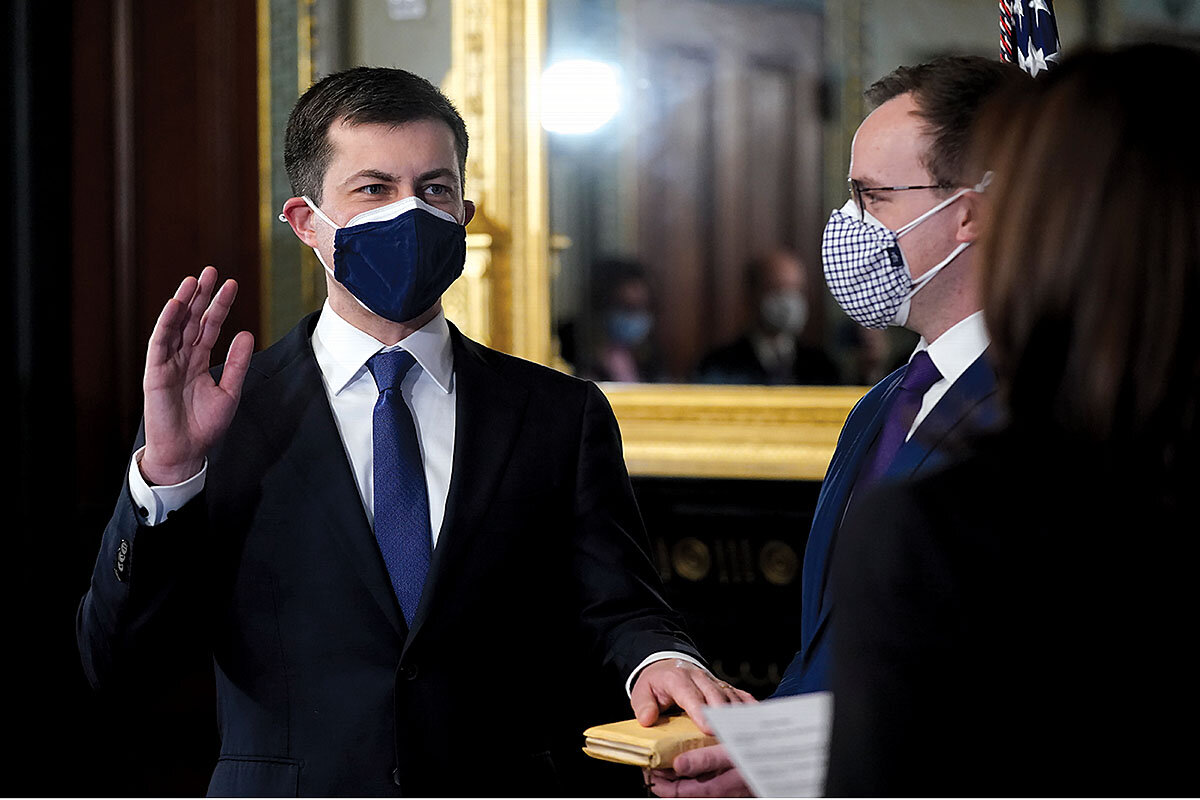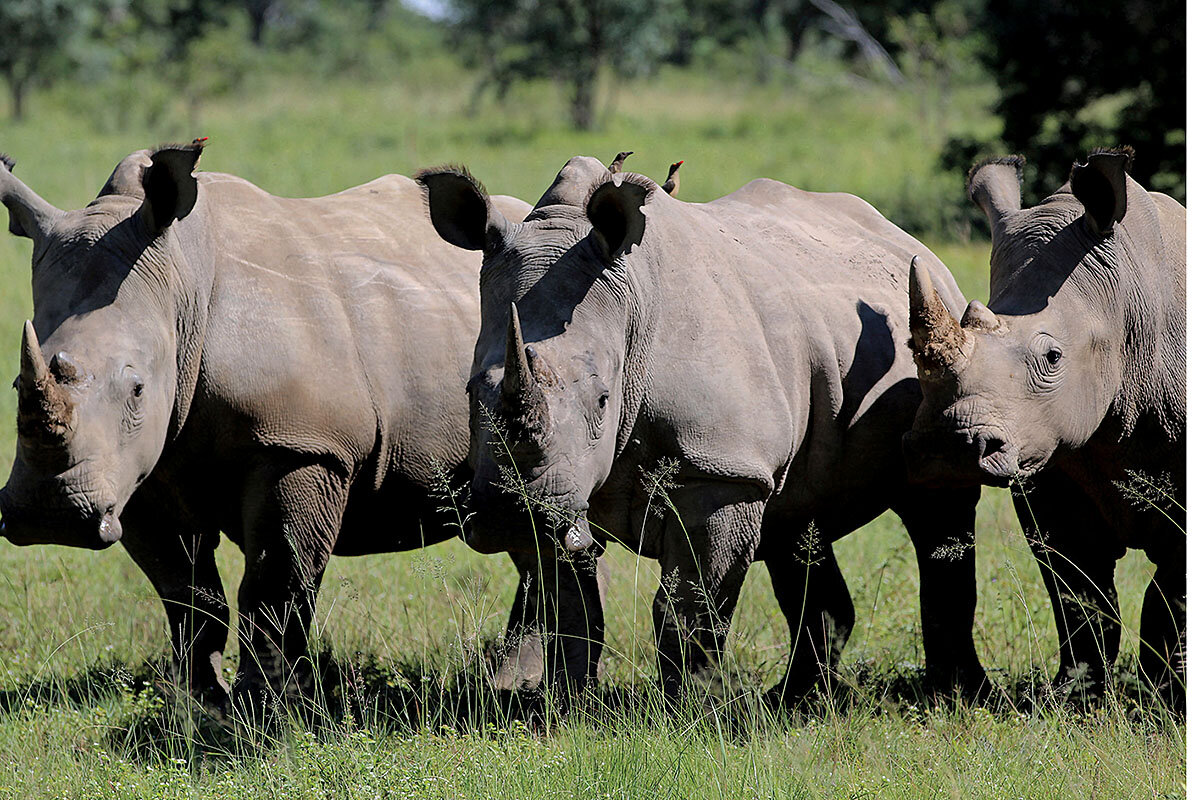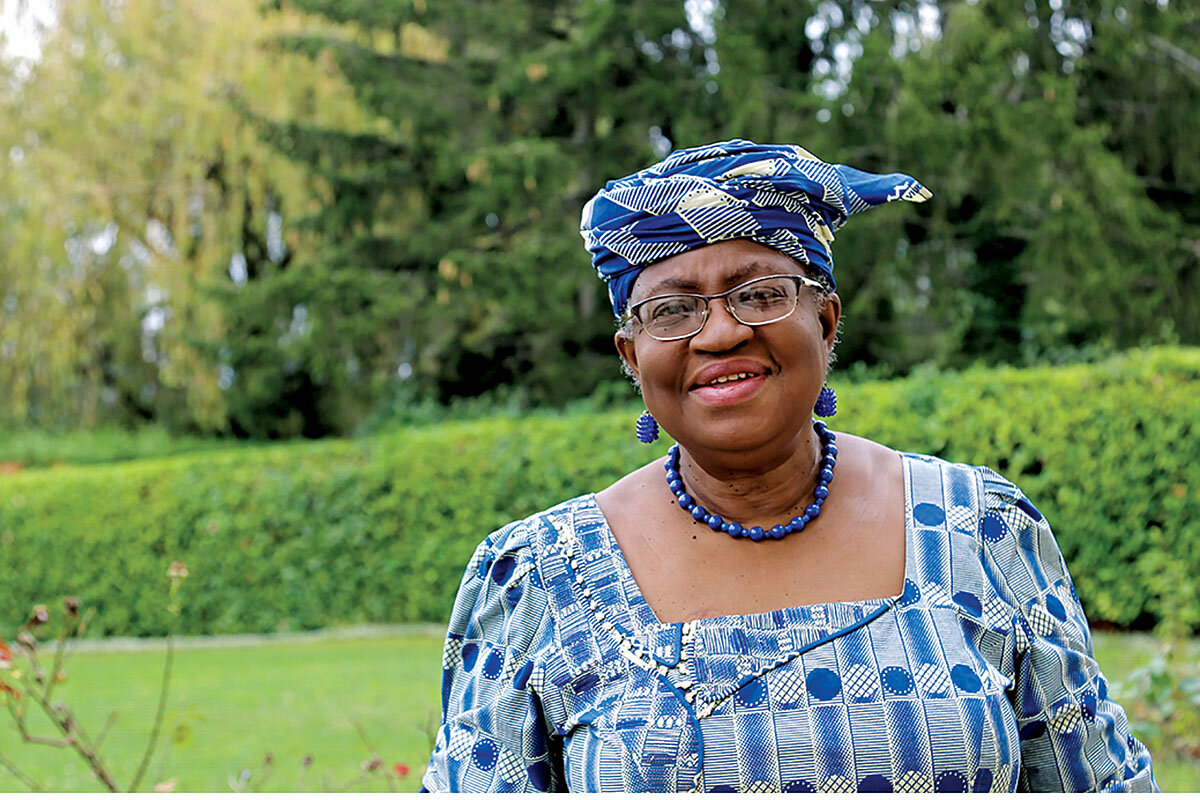Points of Progress: New Zealand recognizes Māori new year, and more
Loading...
1. United States
The U.S. Senate confirmed the first openly gay Cabinet secretary. Former mayor and presidential hopeful Pete Buttigieg is officially leading the Transportation Department following an 86-13 vote. He is tasked with managing the country’s aviation, highways, pipelines, and railroads. Mr. Buttigieg will play a key role in allocating government assistance to struggling transit systems and overseeing new technologies such as self-driving cars.
As acting director of National Intelligence for three months last year, Richard Grenell was the first openly gay Cabinet member. “Pete shattered a centuries-old political barrier with overwhelming bipartisan support and that paves the way for more LGBTQ Americans to pursue high-profile appointments,” said Annise Parker, head of the LGBTQ Victory Institute and a former Houston mayor. (Reuters)
Why We Wrote This
This is more than feel-good news, it's where the world is making concrete progress; a roundup of positive stories to inspire you.
2. Ecuador
A local judge has ruled that Furukawa Plantaciones C.A. violated the rights of 123 ex-laborers who went before the court in January, marking the first time the government has recognized modern-day slavery in agriculture. In an oral ruling, the judge declared the workers had suffered racial discrimination and were victims of servitude – a form of modern-day slavery – at the Japanese-owned abacá tree plantation. Ecuador is one of the world’s top exporters of abacá fiber, a durable material used in rope, currency, and other products, but the workers who harvest it have little to show for their work in the $17 million industry. For years, inspections of the plantation have noted child labor, work accidents, low wages, and poor living conditions. Many are hailing the decision as a legal milestone for the hundreds of Afro-Ecuadorian families who have lived in slavelike conditions since Furukawa was established in 1963. The decision is not definitive, as the case will likely move up to higher courts, but the plaintiffs’ lawyers say the historic ruling opens the way to compensation. (Thomson Reuters Foundation)
3. United Kingdom
The Muslim Council of Britain – the largest umbrella body serving the United Kingdom’s Muslim population – has elected its first female leader. Zara Mohammed has taken the reins as the organization’s secretary-general for a two-year term. More than 3.3 million Muslims live in the U.K., and the council’s member organizations include more than 500 mosques, charities, schools, and professional networks. Ms. Mohammed, who holds a master’s degree in human rights law and hails from Glasgow, Scotland, is also the youngest person to ever lead the organization. “My vision is to continue to build a truly inclusive, diverse, and representative body; one which is driven by the needs of British Muslims for the common good,” she said after the vote, adding that she hopes her victory helps “inspire more women and young people to come forward to take on leadership roles.” (Al Jazeera, Muslim Council of Britain)
4. South Africa
South Africa saw a 33% drop in rhino poaching in 2020 compared with the previous year, marking the sixth year that poaching has declined. Last year, 394 rhinos were reportedly killed for their horn in South Africa, down from 594 in 2019. “While the extraordinary circumstances surrounding the battle to beat the COVID-19 pandemic contributed in part to the decrease in rhino poaching in 2020, the role of rangers and security personnel who remained at their posts, and the additional steps taken by government to effectively deal with these and related offenses, also played a significant role,” said Barbara Creecy, the country’s environment, forestry and fisheries minister.
A total of 156 people were arrested for rhino poaching or horn trafficking across the country, and authorities engaged in more than 25 major investigations. The continued improvement comes after the government implemented new wildlife protection strategies, including public awareness campaigns and regional information sharing. Experts say remaining vigilant as lockdowns ease will be critical to maintaining the downward trend. (Political Analysis South Africa, South Africa News Agency)
5. New Zealand
New Zealand has made Matariki, the Māori new year celebration, the first public holiday that honors Māori culture. Matariki is the Māori name for the Pleiades star cluster, which rises in the Southern Hemisphere around midwinter. This historically marks the start of the new year for mainland New Zealand’s Indigenous people. Local councils have been organizing Matariki celebrations and raising awareness about the tradition since the early 2000s, but past efforts to recognize the constellation’s reappearance as an official holiday have failed. Prime Minister Jacinda Ardern announced the first official Matariki will be celebrated June 24, 2022, and future dates will be determined by the newly formed Matariki advisory group in compliance with the Māori lunar calendar. It will also advise on how to celebrate the event, considering regional differences in tribes’ traditions, and develop resources to educate the public about Matariki’s meaning, said chair Rangiānehu Matamua, a professor who specializes in Māori astronomy. (The Guardian, Stuff)
World
Ngozi Okonjo-Iweala is set to become the first African and the first woman to hold the top position at the World Trade Organization (WTO), and many see her appointment as a historic validation of African women’s competency and leadership. The Nigerian economist has a reputation as a strong international negotiator with a commitment to reducing poverty and improving transparency. She became an American citizen in 2019.
Selecting a new director-general requires approval by all WTO members, and Dr. Okonjo-Iweala’s path was cleared after President Joe Biden reversed the previous administration’s objection to her candidacy. Dr. Okonjo-Iweala is taking over the WTO during turbulent times marked by member infighting and the ongoing coronavirus crisis. (Deutsche Welle, CNN, Al Jazeera)









